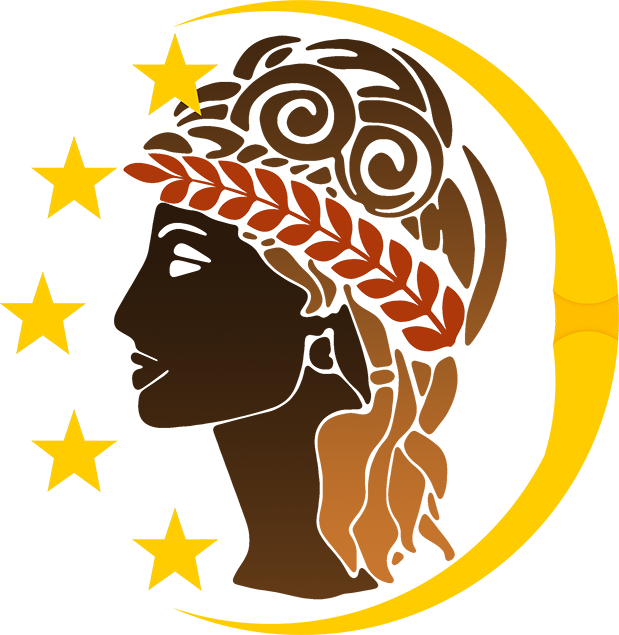The WAVE European Network country report 2021, provides an overall overview and analyses data related to women’s specialist support services (WSSS) in Europe. The report presents Greece’ s profile, highlighting the national situation of service provision, taking into account the standards of Istanbul Convention. The Convention is an international treaty to deal with gender-based violence, setting standards for the provision of women’s specialist support services.
Specifically, Greece’s population is estimated at about 11.000.000 and almost half of them is female. There are two state-wide women’s helplines in Greece, both of which are available 24/7 and offer multilingual support. One of them is free of charge. Greece does meet the Istanbul Convention standards for the provision of a national women’s helpline. There are 24 women-only shelters that offer 450 beds. There is a shortage of 58% of the necessary bed spaces, meaning that Greece does not meet the IC standards for the provision of women’s shelters. There are 51 women’s centres in the country, but no specialised services for women and girls who have experienced sexualised violence. The state does collect data on women’s specialist services, and it is publicly available.
There are two state-wide women’s helplines in Greece. The main one is run by the General Secretariat for Family Policy and Gender Equality and is called SOS Helpline 15900 (Γραμμή SOS, tel.: +30 15900). The helpline is not free of charge, but it is available 24/7 and it provides support for survivors of domestic violence, sexual violence, sexual harassment, trafficking, and stalking in Greek, Arabic, English, and Farsi. The helpline is funded by the state. The second state-wide women’s helpline is called Helpline against domestic violence (Γραμμή Ελπίδας, tel.: +30 8011116000) and is run by the Union of Women Associations of Heraklion Prefecture (UWAH). The helpline is free of charge, available 24/7, and offers support for violence against women in Greek and English. It receives funding from private donors. From November 2019 to December 2020, the helplines received 9,872 calls. The most common forms of violence reported by callers were domestic violence, sexual harassment, and rape.
There are 24 women-only shelters in Greece that are accessible 24/7 and offer approximately 450 beds. Women are not required to pay for their accommodation. Twenty-one shelters are state-owned and therefore financed by the state, while the remaining shelters are financed through donations. Women usually stay in a shelter from three to six months. Women’s shelters are only present in major cities: Attica region, Thessaloniki, Heraklion, Larissa, Volos, Ioannina, Patras, Lesvos, Lamia, Kozani, Agrinio, Kerkyra, Komotoni, Rhodes, Tripoli, Chania, and Drama. They offer casework, counselling, referrals, practical advice, and legal advice mainly for survivors of domestic violence, human trafficking, and stalking. There are no specific shelters for women of marginalised groups in Greece. The main reasons for having to decline referrals are the lack of space and capacity to support the survivor, to accommodate the survivor and her children, or to accommodate survivor’s ineligible for support, for instance because of substance abuse.
In Greece, there are 51 women’s centres: six of them are run by women’s NGOs, three by other kinds of NGOs, and 42 by government agencies. They are present in most regions and provide mainly non-residential support services. They are funded by the state and through donations. Survivors supported by these centres can receive counselling and psychological support, updates and information on gender equality, combating violence and discrimination against women; social, legal, housing and employment advice; referral or accompaniment, if necessary, to women’s shelters, police and prosecution authorities, courts, hospitals, health and mental health centres, social services for social assistance; legal aid in cooperation with lawyers’ associations. Women’s centres in Greece assisted 6,109 women in 2020. There are no specific services for women and girls who have experienced sexualised violence. Women’s centres can provide support to survivors of SV.
It is worth mentioning that COVID-19 pandemic had an impact on women’s specialist support services. During the COVID-19 pandemic, women’s specialist support services (WSSS) had to adapt to this unprecedented situation. The network of shelters was operational, with shelter staff working in teams and/or teleworking, allowing services to be provided via Skype or telephone. Nevertheless, WSSS had to face many additional challenges. For instance, courts were not functioning at all for long periods of time, worsening the condition of survivors (especially if with children and in need of children’s custody and child support). At the same time, the police were focusing almost exclusively on COVID-19 and the same was happening with hospitals that were almost inaccessible for routine examinations, that are necessary for survivors to be able to access women’s shelters. Unemployed survivors, especially those with children, were unable to find jobs, needing, therefore, additional financial and practical support.
The General Secretariat for Family Policy and Gender Equality has taken a series of actions during the pandemic, such as the implementation of the TV campaign “We stay home but we do not remain quiet” promoting the SOS 15900 Helpline and the sos15900@isotita.gr, the provision of free and safe accommodation for urgent cases of women victims of gender-based violence, but only during the lockdown periods, as well as efforts to increase the collaboration with local and international organisations. Local NGOs also set up specific plans to cope with the emergency. For example, the Union of Women’s Associations of Heraklion (UWAH) carried out a series of actions such as informing the population on social media, in pharmacies, markets and food shops, on national TV and radio stations; disseminating practical tips for women experiencing DV in quarantine; involving the police in serious cases. Public funding for women’s support services has not been affected by the pandemic. However, funding from private donations has decreased significantly for women’s NGOs.



Recent Comments